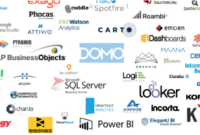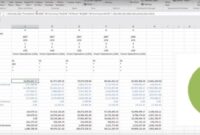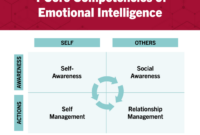As business intelligence developer job descriptions take center stage, they beckon readers into a world crafted with expertise and clarity. This comprehensive guide delves into the intricacies of the role, providing an absorbing and informative reading experience.
Business intelligence developer job descriptions often require proficiency in both business intelligence and business analytics. While these two fields are related, they are distinct. Business intelligence focuses on gathering and analyzing data to provide insights into past and present performance.
Business analytics, on the other hand, uses data to predict future trends and make recommendations for improvement. For more information on the differences between business intelligence and business analytics, see business analytics vs business intelligence. Business intelligence developers play a vital role in helping businesses make informed decisions and achieve their goals.
Business intelligence developers play a pivotal role in transforming raw data into actionable insights, empowering organizations to make informed decisions and drive growth. Their responsibilities encompass data analysis, visualization, and reporting, requiring a blend of technical proficiency and business acumen.
Business Intelligence Developer Job Description
Business Intelligence Developers are responsible for collecting, analyzing, and visualizing data to provide insights that help businesses make informed decisions. They play a crucial role in data-driven decision-making and are highly sought after in today’s data-centric world.
Data Analysis and Management
Business Intelligence Developers use a variety of data analysis techniques to extract meaningful insights from data. They collect data from various sources, clean and prepare it for analysis, and then use statistical and machine learning algorithms to identify patterns and trends. They also use data management tools to organize and maintain data, ensuring its integrity and accessibility.
Data Visualization and Reporting

Business Intelligence Developers use data visualization techniques to present data in a clear and concise way. They create dashboards, charts, and graphs that help stakeholders understand complex data and make informed decisions. They also create reports that summarize key findings and provide recommendations based on their analysis.
Communication and Collaboration
Business Intelligence Developers must have excellent communication skills to effectively convey their insights to stakeholders. They work closely with business leaders, data analysts, and other stakeholders to understand their needs and deliver insights that are relevant and actionable. They also use data visualization to facilitate communication and make complex data more accessible to decision-makers.
Business Acumen and Industry Knowledge

Business Intelligence Developers need to have a strong understanding of business principles and industry-specific knowledge to provide meaningful insights. They apply their business acumen to interpret data and identify opportunities for improvement. They also stay up-to-date on industry trends and best practices to ensure that their insights are relevant and impactful.
Career Path and Advancement Opportunities, Business intelligence developer job description
The career path for Business Intelligence Developers is typically progressive, with opportunities for advancement to senior-level positions such as Data Architect, Data Scientist, or Chief Data Officer.
They can also specialize in specific areas such as data analytics, data visualization, or business intelligence consulting. Professional development and certification programs can enhance career advancement prospects.
Last Recap

In conclusion, business intelligence developers are indispensable assets to organizations seeking to harness the power of data. Their ability to translate complex information into meaningful insights drives decision-making, innovation, and ultimately, business success.
Answers to Common Questions: Business Intelligence Developer Job Description
What are the primary responsibilities of a business intelligence developer?
Business intelligence developers are responsible for collecting, cleaning, analyzing, and visualizing data to provide insights that support decision-making.
What technical skills are required for this role?
Business intelligence developers typically require proficiency in data analysis tools, data visualization software, and programming languages such as SQL and Python.
How do business intelligence developers collaborate with stakeholders?
Business intelligence developers work closely with stakeholders to understand their needs, translate those needs into data-driven insights, and present their findings in a clear and actionable manner.




